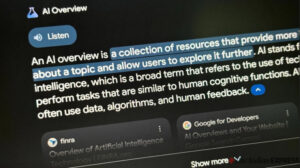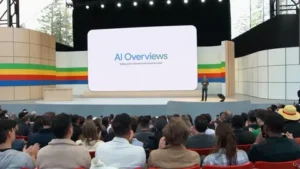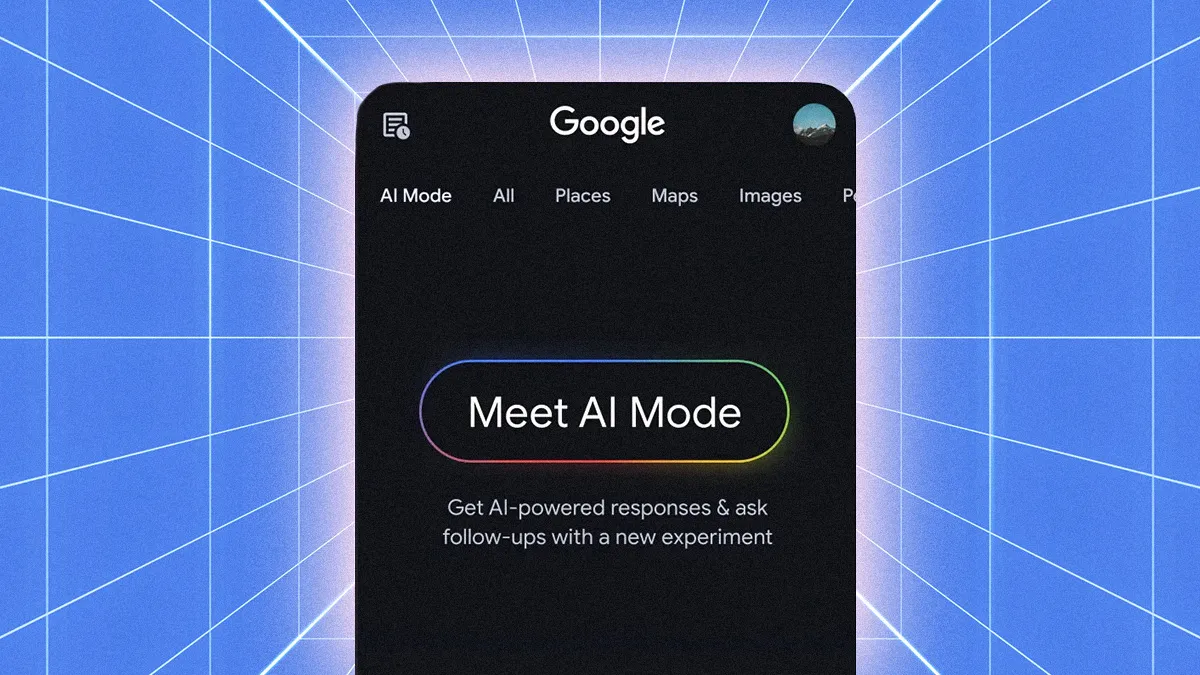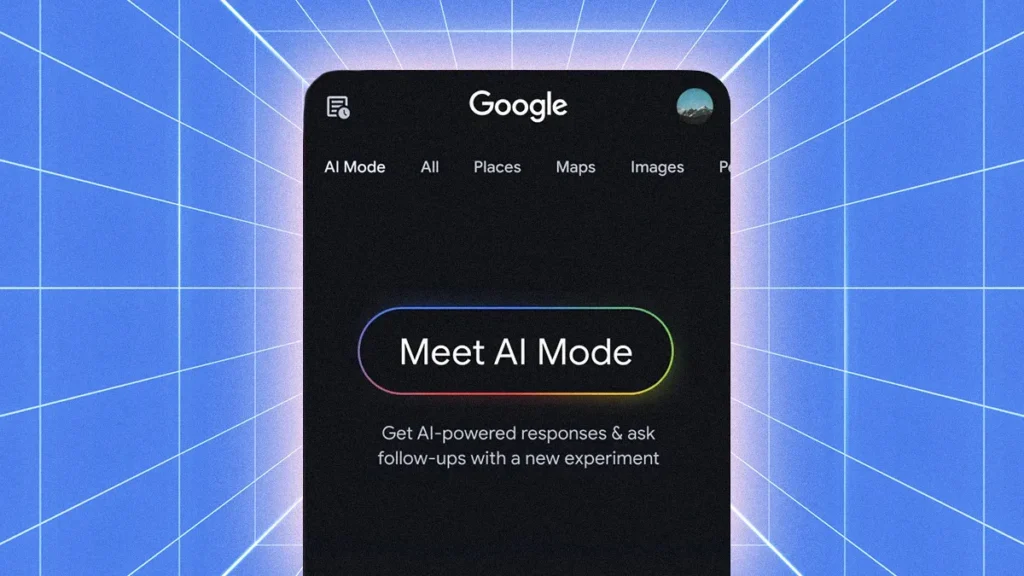Introduction to Google’s AI Mode launch in Pakistan
Google has recently announced the launch of its highly anticipated Artificial Intelligence (AI) mode in Pakistan. This move marks a significant milestone for the tech giant as well as for the country, bringing cutting-edge technology and accessibility to millions of people.

Artificial Intelligence has been making waves in the world of technology with its ability to mimic human intelligence and perform tasks that usually require human cognition. With Google’s AI mode, users can experience an enhanced level of efficiency and convenience in their daily lives. From personalized recommendations to voice-activated commands, this advanced technology is set to revolutionize how we use our devices.
The launch of Google’s AI mode in Pakistan is a testament to the country’s growing potential and investment opportunities in the field of technology. It also reflects Google’s commitment towards making its products accessible and beneficial for people from all walks of life.
One of the most exciting features of this new AI mode is its natural language processing capabilities, which means it can understand and respond to everyday language commands. This will make using smartphones, laptops, or any other device equipped with this feature more intuitive and effortless than ever before.
Moreover, Google’s AI mode also enables users to interact with their devices through voice commands without having an internet connection. This offline capability is especially beneficial for areas with limited access to internet services, ensuring that everyone can benefit from this innovative technology regardless of their location.
In addition to these features, Google’s AI mode also offers personalized recommendations based on user behavior and preferences. This means that your device will become smarter over time by learning your patterns and suggesting relevant content or activities accordingly.
The introduction of this advanced technology in Pakistan has tremendous potential for improving various aspects of life such as education, healthcare, communication, transportation, etc. It will not only enhance productivity but also open up new avenues for innovation and growth.
The launch of Google’s AI mode in Pakistan is a game-changer for the country’s tech industry and its people. With its advanced features and capabilities, it has the potential to improve our daily lives and contribute to the overall development of the nation. The future looks bright with this revolutionary technology at our fingertips.

What is AI and why is it important?
Artificial Intelligence (AI) refers to a branch of computer science that focuses on creating intelligent machines that can mimic human actions and thought processes. It involves the development of algorithms and software programs that enable machines to perform tasks with human-like intelligence, such as understanding language, recognizing patterns, making decisions, and learning from experience.
AI has become increasingly important in today’s digital age due to its potential to revolutionize various industries and improve our daily lives. With the exponential growth of data in recent years, AI has emerged as a powerful tool for analyzing large datasets quickly and accurately. This allows businesses to gain valuable insights into consumer behavior, market trends, and other crucial information that can inform their decision-making processes.
In addition to its business applications, AI also plays a significant role in improving healthcare services. With the ability to process vast amounts of medical data, AI-powered systems can assist doctors in diagnosing diseases more accurately and recommending personalized treatment plans for patients. This has the potential to save countless lives by reducing misdiagnoses and increasing efficiency in healthcare delivery.
Moreover, AI technology has made impressive strides in enhancing accessibility for individuals with disabilities. For instance, voice recognition software enables people with physical impairments or conditions such as dyslexia to interact with devices more easily by using voice commands instead of typing. Similarly, visually impaired individuals can benefit from image recognition technology that describes objects or scenes through audio cues.
Furthermore, AI has also paved the way for advancements in transportation systems through self-driving cars and smart traffic management systems. These innovations have the potential not only to make transportation safer but also more efficient by reducing traffic congestion and optimizing routes.
Google’s launch of its AI mode in Pakistan marks an exciting milestone for both technology accessibility and innovation within the country. As one of the largest tech giants globally, Google’s commitment towards promoting digital inclusion through this initiative will undoubtedly have a far-reaching impact on the development of AI technology in Pakistan.
AI is a crucial and rapidly evolving field that has the potential to transform various industries and improve our lives in numerous ways. With the launch of AI mode in Pakistan, Google has taken a significant step towards democratizing access to this powerful technology, paving the way for further advancements and innovations in the country’s tech landscape.
The impact of AI on technology accessibility in Pakistan
The impact of AI on technology accessibility in Pakistan has been a significant topic of discussion in recent years. With Google’s launch of AI mode in the country, the conversation around this issue has reached new heights. This revolutionary feature is set to change the landscape of technology accessibility in Pakistan and bring about a positive shift towards greater inclusivity.
One of the major impacts of AI on technology accessibility is its ability to bridge the digital divide. In a country like Pakistan, where only 35% of the population has access to the internet, AI can play a crucial role in providing equal opportunities for all. Through its advanced algorithms and machine learning capabilities, AI can make online content more accessible for individuals with disabilities or those who lack basic literacy skills.
Moreover, with an estimated 28 million people living with disabilities in Pakistan, AI can greatly enhance their lives by making technology more accessible. The introduction of voice recognition technologies and virtual assistants like Google Assistant have made it possible for people with visual impairments or physical disabilities to use smartphones and other devices without any hindrance. This not only empowers them but also gives them a sense of independence and inclusion.
Another significant impact of AI on technology accessibility is its potential to revolutionize education in Pakistan. With millions of children out of school due to various reasons, such as poverty or lack of resources, AI-powered educational tools can provide them with access to quality education from anywhere at any time. These tools can personalize learning experiences based on individual needs and learning styles, making education more inclusive and effective.
Furthermore, AI’s impact on healthcare accessibility cannot be overlooked. With a shortage of medical professionals in remote areas and limited resources for proper diagnosis and treatment, AI-powered medical devices can bridge this gap by providing accurate diagnoses and treatment recommendations at affordable costs. This will greatly benefit disadvantaged communities who struggle to receive adequate healthcare services.
Google’s launch of AI mode is set to revolutionize tech accessibility in Pakistan and bring about a positive change in the lives of millions. With its ability to bridge the digital divide, enhance education and healthcare accessibility, and empower individuals with disabilities, AI has the potential to create a more inclusive and equitable society.
Features and capabilities of Google’s AI Mode

Google’s AI Mode in Pakistan introduces an array of innovative features designed to enhance user experience. One standout capability is natural language processing, allowing users to interact seamlessly with various applications through voice commands and contextual understanding.
Additionally, the mode offers personalized recommendations based on user behavior. This ensures that individuals receive tailored content and suggestions suited to their preferences.
Another remarkable feature is real-time translation. Language barriers become less daunting as text and speech are translated instantly, promoting more effective communication among diverse populations.
Moreover, Google’s AI Mode includes smart automation tools that streamline daily tasks. From scheduling appointments to managing emails, it simplifies complex processes into manageable steps.
These capabilities empower users by making technology more intuitive and accessible across different demographics in Pakistan. With such advancements, everyday life can transform dramatically for many citizens.
How will this benefit the people of Pakistan?
The launch of AI Mode by Google in Pakistan opens up a world of opportunities. It enhances communication, making it easier for people to connect across language barriers.
Imagine students accessing vast resources with just their voice commands or farmers receiving real-time updates on weather and market prices tailored to their needs.
Healthcare can transform as well. Patients may benefit from AI-driven diagnostics that streamline processes and improve care quality.
Small businesses could leverage AI tools for marketing and inventory management, driving growth in local economies.
Additionally, education will see a boost through personalized learning experiences powered by artificial intelligence.
This shift not only empowers individuals but also cultivates an environment ripe for innovation and progress throughout the nation. The possibilities are truly exciting as communities engage with this technology daily.
Challenges and concerns surrounding the implementation of AI in Pakistan
The launch of AI Mode in Pakistan raises several challenges and concerns. One major issue is the lack of digital infrastructure, especially in rural areas. Without reliable internet access, many citizens may struggle to benefit from this advanced technology.
Privacy and data security are other pressing issues. As AI systems often require vast amounts of personal data, there are valid fears about how this information will be used or protected. Many people worry that their privacy could be compromised.
Moreover, there’s a knowledge gap among the workforce. Skills training programs need to catch up quickly to prepare individuals for new job opportunities created by AI technologies.
Lastly, ethical considerations loom large as well. Ensuring that AI tools work impartially becomes imperative; biases within algorithms could negatively impact marginalized communities if not addressed properly. These hurdles must be navigated thoughtfully for successful implementation.
Other countries with successful implementations of AI in daily life
Countries around the world are embracing AI in remarkable ways. In Japan, robots assist with elderly care, improving quality of life and providing companionship. This integration showcases how technology can address demographic challenges.
Similarly, Canada has implemented AI in healthcare to streamline patient management systems. By analyzing vast amounts of data, hospitals enhance diagnosis accuracy and treatment efficiency.
In Estonia, digital governance is a game-changer. The country uses AI for everything from tax collection to voting processes, making administration smoother and more transparent.
Meanwhile, Singapore’s smart city initiatives demonstrate the potential of AI in urban planning. Traffic management systems powered by artificial intelligence reduce congestion while enhancing public transport operations.

These examples highlight that when integrated thoughtfully into society, AI can significantly elevate everyday living experiences worldwide. Each nation’s unique approach offers insights into how Pakistan could harness similar benefits through its launch of Google’s AI Mode.
The future of technology in Pakistan with the introduction of AI Mode
The introduction of AI Mode in Pakistan marks a pivotal shift in the technological landscape. As businesses and individuals embrace this innovative tool, we can expect to see an explosion of creativity and efficiency across various sectors.
Education stands to benefit immensely. Personalized learning experiences powered by AI could enhance student engagement and improve outcomes. Teachers will have more time to focus on what truly matters—nurturing young minds.
Healthcare is another area ripe for transformation. With AI’s ability to analyze data quickly, medical professionals can make informed decisions faster, potentially saving lives.
Moreover, small enterprises can leverage AI tools for automation and analytics without hefty investments. This democratizes technology access, allowing even startups to compete on a global scale.
As communities adapt, there’s potential for job creation in tech-driven fields previously unexplored in Pakistan. The future feels promising as society steps into this new digital era with enthusiasm and ambition.
Conclusion: thinking beyond the launch
The launch of Google’s AI Mode in Pakistan marks a significant milestone for the country’s tech landscape. With advancements in artificial intelligence, possibilities are expanding rapidly.
As the nation embraces this transformative technology, we can anticipate improvements across various sectors — from healthcare to education and beyond. The integration of AI tools promises not only enhanced efficiency but also a more inclusive approach to tech accessibility.
However, as exciting as these developments are, they come with their own set of challenges. Issues regarding data privacy and potential job displacement must be addressed to ensure that progress benefits everyone equitably.
Looking ahead, it will be crucial for local businesses and policymakers to collaborate effectively. Investments in infrastructure and training programs could lay a strong foundation for sustainable growth within the tech industry.
Pakistan stands on the brink of an innovative era driven by artificial intelligence. As we move forward, staying informed and proactive about technological trends will empower citizens to harness these changes meaningfully. The future is poised for great things; it’s up to us how we navigate through this new digital frontier.





